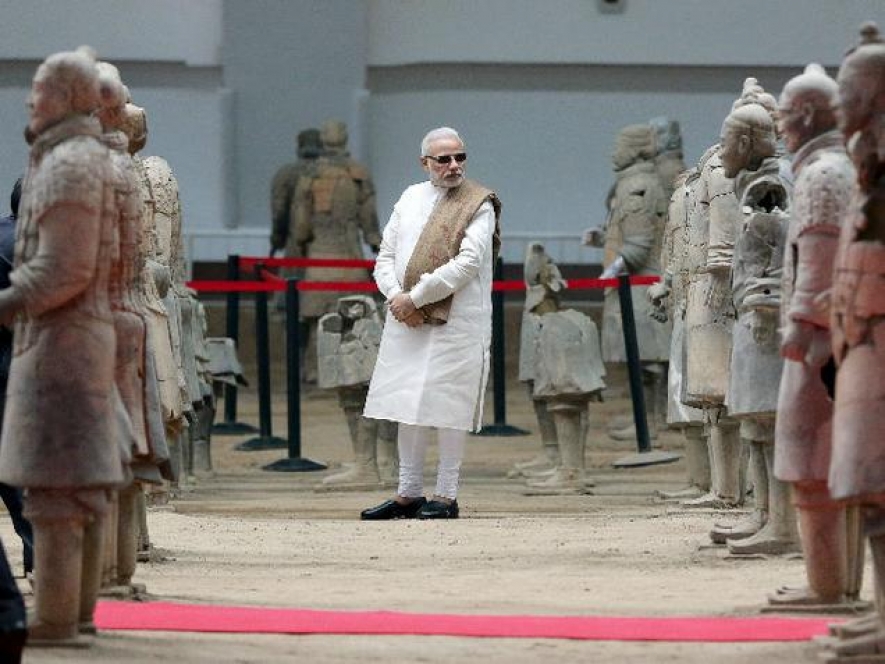“Not an ordinary city. Not an ordinary welcome,” tweeted Vikas Swarup, the foreign office spokesperson, soon after the Prime Minister landed in Xian on Thursday — a city known as the starting point of the ancient Silk Road. The foreign office later described the Prime Minister’s walk around at pit-2 within the Terracotta Army Museum as a “Face to face with history”.
Within a few hours, the Prime Minister was, accompanied by President Xi Jinping at the Wild Goose Pagoda, the emblem of China’s umbilical ties with India. The Pagoda is dedicated to Xuan Zeng, the Chinese traveler and monk, whose 17 years in India, enriched Buddhism in China.
The visit, which showed China and India had copious reserves of soft power set the tone for the Prime Minster’s talks with Mr. Xi later in the evening.
Unlike previous occasions, India’s border dispute with China was unlikely to be the highlight of the talks. That track has been compartmentalised in the dialogue among the Special Representatives of the two countries. However, highly placed sources told The Hindu, that both countries are committed to ensure that the borders remain calm, and China-Indian ties on the economic and geopolitical tracks are not sidetracked. The sources said that Indian and Chinese local commanders will soon be able to dialogue with each other at Kibithu, in the eastern sector. Political clearance has also been obtained for a hotline between the two army headquarters.
But the Indian side is looking for a deeper collaboration in infrastructure development especially railways. The feasibility study on the Delhi-Chennai high-speed has commenced, but a big ticket announcement on possible Chinese participation on this project is still far away.
“We are looking for Chinese support on skill development, either in railways or training of Indian workers who can then have the know-how to handle the state-of –of the art equipment that would be used within the Make-in-India framework,” said a diplomat by way of background. India is also looking for a major Chinese contribution in clean energy, to help fulfill the target of 100,000 MWs of renewable energy by 2022.
The sources pointed out that China and India are still not on the same page on Beijing’s “belt and road” initiative to integrate the economics of Eurasia. Yet a conversation on this topic is expected when the two leaders meet. As of now India is ready to work together with China on specific projects within the “road and belt “framework including the Bangladesh –China-India-Myanmar economic corridor.
The two countries are also aligned on creating a new global financial architecture, manifested by the Asian Infrastructure Investment Bank (AIIB), which is expected to contribute to the development of infrastructure in Asia. The Chinese are also the key players in the development of the proposed development bank steered by the Shanghai Cooperation Organisation (SCO), which India is expected to join later this year.



















